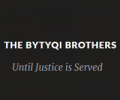Serbia’s Detention Camps: Invisible But Not Forgotten
All the 1990s prison camps and mass graves in Serbia are still unmarked, but as the government seeks Croatia’s backing in EU accession negotiations, it has pledged to erect the first memorial.
BIRN Belgrade
 |
| Aleksandar Vucic. Photo: BETA. |
Serbian Prime Minister Aleksandar Vucic made an unexpected promise during a closed-door meeting in Belgrade last week with a Croatian lawyers’ association called Vukovar 1991, which represents some of the country’s war victims.
According to Vukovar 1991, Vucic pledged to do everything necessary to identify people who committed war crimes against non-Serb prisoners of war at five detention camps in Serbia in the 1990s and to establish a first memorial to the victims.
“This is the first time that someone has received representatives of a Croatian association for talks on Serbian POW camps, and at the highest level,” Zoran Sangut, the chairman of the Vukovar 1991, told Croatian media.
“This happened on the initiative of the Bundestag, specifically Josip Juratovic [a German MP of Croatian origin], and following a meeting between Prime Minister Vucic and Croatian President Kolinda Grabar-Kitarovic,” he added.
According to Sangut, the Serbian authorities will allow all ex-inmates and their families to visit the former Stajicevo camp, in the Serbian province of Vojvodina close to the Croatian border, to lay wreaths and light candles in September on the anniversary of the start of the war.
Stajicevo is one of the five wartime prison camps in Serbia where mostly Croats were held. All of them are unmarked and virtually abandoned, or have been transformed into factories.
At Vucic’s meeting with Vukovar 1991, the idea of erecting a monument to pay homage to the victims at Stajicevo was also discussed. German diplomats are to monitor the process of establishing the monument, Vukovar 1991 said.
But some experts said they believed that Vucic’s promises were motivated by political expediency.
Dinko Gruhonjic, a journalist and advocate for regional truth-seeking commission RECOM, told BIRN that he thought Vucic’s offer was influenced by the fact that Croatia has been blocking Serbia from opening Chapters 23 and 24 of its membership negotiations with the EU.
In order to allow Serbia to open Chapters 23 and 24 – dealing with the rule of law, the judiciary and human rights – Croatia is demanding that Serbia first pledges full respect for national minority rights, full cooperation with the Hague war-crimes tribunal, and scraps a law giving Serbia the jurisdiction to try war crimes committed in all the 1990s conflicts in the former Yugoslavia.
“This meeting [with Vukovar 1991] is connected with the opening of the Chapters, since Croatia was giving Serbia preconditions about the wartime past,” Gruhonjic said.
“This is an attempt to normalise relations, but whether it will just stay on the level of promises or something real will come out of it remains to be seen,” he added.
‘The best-documented crimes’
 |
| The Stajicevo prison camp. Photo: Wikicommons/Stebunik. |
At the meeting with Vucic, Vukovar 1991 also demanded action over criminal charges that have been laid against unidentified perpetrators of war crimes at the POW camps in Sremska Mitrovica, Stajicevo, Begejci and Nis and the military prison in Belgrade.
Wartime Croatian Serb leader Goran Hadzic, the former president of the self-proclaimed Republic of Serbian Krajina in Croatia, who died on Wednesday, was accused by the Hague Tribunal of responsibility for the crimes committed in some of those camps.
Hadzic, who died before the end of his trial, was charged with the unlawful detention of Croats and other non-Serbs and of holding them in inhumane conditions.
The indictment alleged that several thousand Croats and other non-Serb civilians were held in detention facilities at Stajicevo, at Yugoslav People’s Army military barracks in Begejac and Zrenjanin in Serbia, and at the military prison in Sremska Mitrovica.
Sandra Orlovic of the Belgrade-based Humanitarian Law Centre told BIRN that although there was an abundance of evidence, the Serbian prosecution did very little to solve these cases.
“The War Crimes Prosecution in Serbia has not conducted investigations adequately since only one person has been convicted of abuses in Sremska Mitrovica. There is no excuse for that, since the crimes in Stajicevo, Begejci and Sremska Mitrovica are some of the best documented crimes of the 1990s war,” Orlovic said.
Marko Crevar, a former member of Croatian Serb forces, is the only person who has been convicted. He was sentenced to a year and a half in prison in February 2015 after he admitted he tortured civilians at the prison camp in Sremska Mitrovica.
Both Orlovic and Gruhonjic are suspicious about the announcement that a monument will be built to the victims at the Stajicevo camp.
“It would be pretty much surprising if that happens, since that would mean admitting the role that Serbia had in the 1990s war. So far, it has always been swept under the rug,” Gruhonjic said.
As Serbia has no national regulations governing the construction of monuments and memorials, such matters are left to local governments to decide.
An initiative to create national legislation governing memorials was launched in late 2014, when the Ministry of Labour opened a public debate on the Draft Law on Monuments and Memorials.
The government adopted the draft law and submitted it to the national assembly for consideration, although it has not yet been approved by MPs.
The draft allows the building of monuments which are “in line with the tradition of the Serbian wars for national liberation” – a wording which Orlovic said would rule out memorials to war crimes victims.
“If the assembly adopts it, that would mean that there will be no possibility of criticising Serbian war crimes,” she said.
Kosovo, the greatest taboo
 |
| Excavations at the Rudnica mass grave in southern Serbia. Photo: War Crimes Prosecution Office. |
It is not that only prison camps for Croatian prisoners of war that remain unmarked.
The Serbian authorities also had camps for Bosnian prisoners, while after the Kosovo war, several mass graves were discovered in Serbia. All these sites remain unmarked, despite several initiatives by human rights NGOs to rectify this.
This year, the HLC launched an initiative to establish memorials at a police training centre in Batajnica, where eight mass graves containing the remains of Kosovo Albanians were discovered in 2001 and 2002.
According to the International Commission for Missing Persons, 704 complete bodies were found; their remains were brought to Serbia from Kosovo in an attempt to cover up the killings by Belgrade’s forces.
Beside the bodies found in Batajnica, the remains of Kosovo Albanians killed in the war have been found in Lake Perucac, at a police centre in Petrovo Selo and at the Rudnica quarry near Raska.
Some 1,700 people, both Kosovo Albanians and Serbs, are still listed as missing since the war.
The Serbian prosecution has so far not prosecuted anyone for the removal of the bodies and the attempted cover-up.
Although the war in Kosovo ended 17 years ago, crimes against Albanians by the Serbian police, military and paramilitary forces are still rarely spoken of, Orlovic said, making the campaign to create memorials to the victims more difficult.
“The initiative for setting up memorials in Batajnica will be a years-long process, since the Kosovo crimes are the biggest taboo in Serbia,” she predicted.








